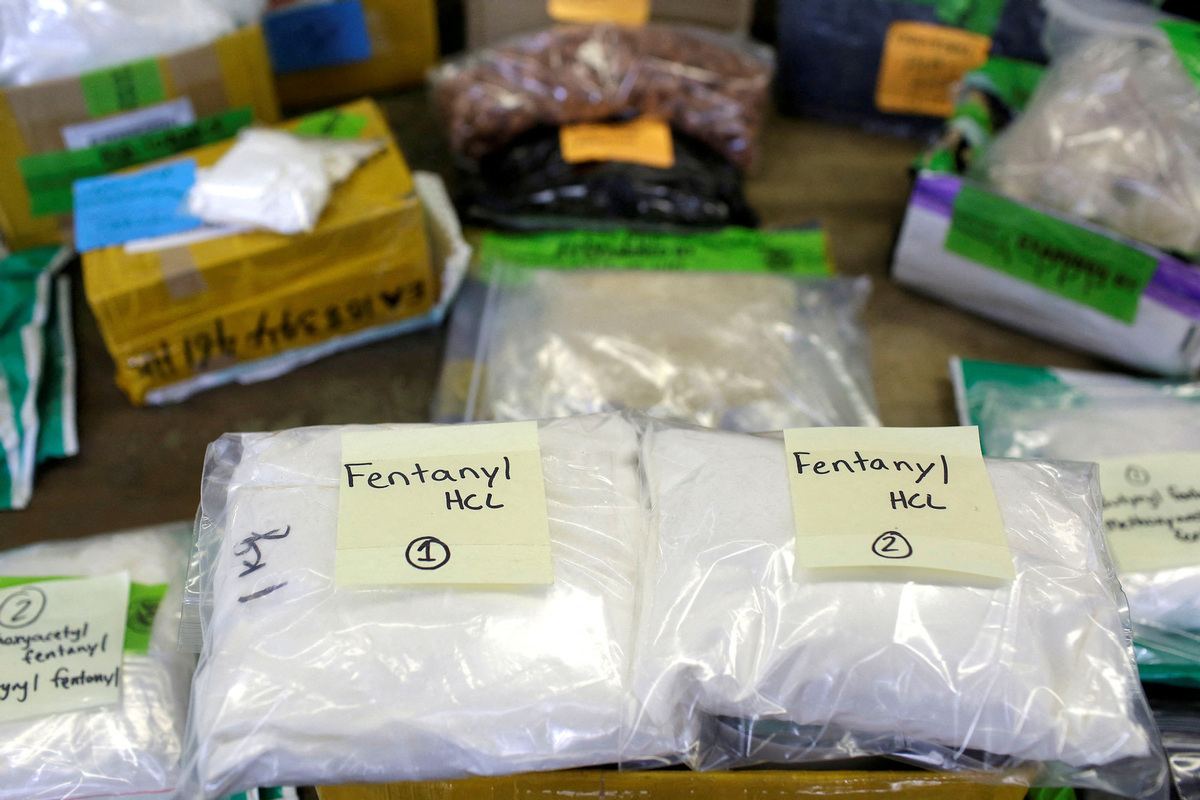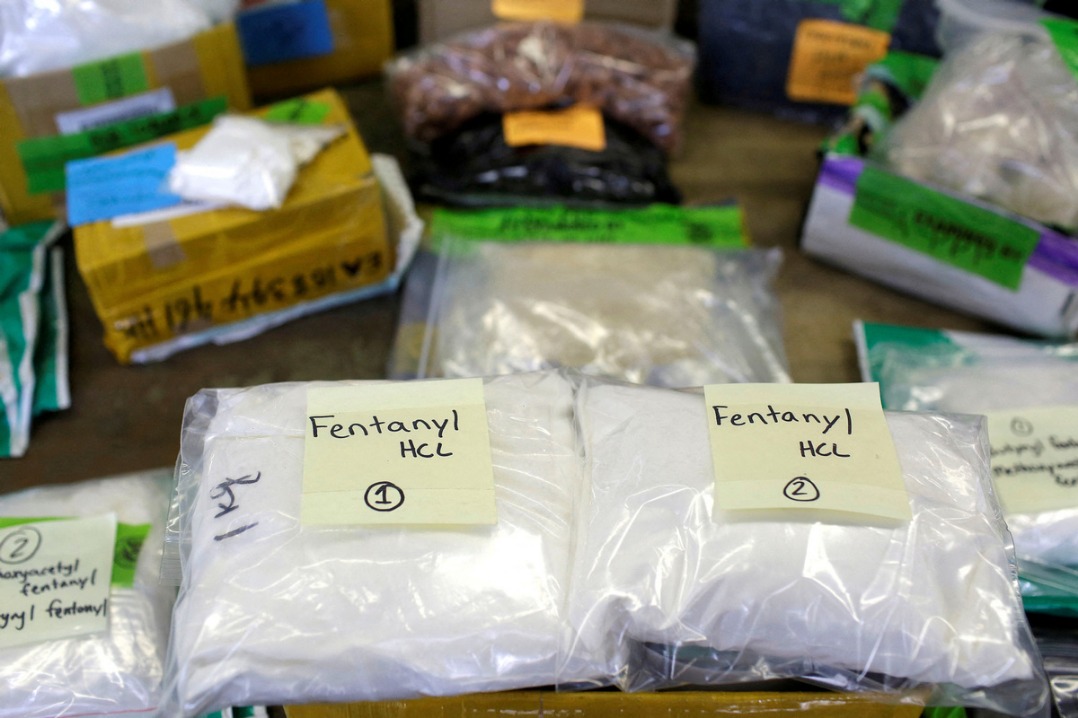Tariffs are not the cure for the US Fentanyl crisis


Additional US tariffs on China went into effect on March 4. Under what pretext? Fentanyl. The US has cited illicit drugs “pouring into our country” as the primary reason and blamed China for not doing enough.
The US may see tariffs as the cure. They are not. The only significant effect was a heavier burden on American consumers. The cure must come from within.
In recent years, fentanyl abuse has become a severe crisis in the US With less than 5% of the world's population, the country consumes over 80% of the global opioid supply. Statistics from the US Centers for Disease Control and Prevention show that synthetic opioids—primarily illicitly manufactured fentanyl—were involved in 75,000 overdose deaths in 2023, accounting for nearly 70% of the total. Over 150 Americans die daily from overdoses linked to synthetic opioids like fentanyl, making it the leading cause of death for Americans aged 18 to 45.
A key driver of this crisis is easy access: over-prescription, lax regulation, and insufficient public awareness campaigns. As a Los Angeles County sheriff noted, “Getting fentanyl is as easy as ordering pizza.”
Where is the US government in all this? Instead of addressing root causes, politicians have sought foreign scapegoats—and once again, China is the target. They claim China bears responsibility for the unrelenting crisis and the loss of American lives to illicit drugs.
Anyone familiar with China's modern history knows the trauma inflicted by the Opium Wars. This legacy fuels China's deep antipathy toward narcotics and its zero-tolerance policy. The Chinese people empathize with Americans grappling with this crisis.
In fact, China has one of the world’s strictest counter-narcotics policies and enforces it rigorously. In 2019, China became the first nation to classify all fentanyl-related substances as controlled drugs. According to the 2023 China Drug Situation Report, registered drug users in China fell to 896,000 by late 2023—a 20.3% annual decrease, representing just 0.064% of the population.
China recently released a white paper titled Controlling Fentanyl-Related Substances: China’s Contribution, detailing efforts to regulate fentanyl medications, prevent abuse, crack down on illegal activities, and support global drug control.
The US has received substantial Chinese cooperation in combating fentanyl, including joint efforts in drug scheduling, intelligence sharing, case collaboration, online ad removal, drug-testing technology exchanges, and multilateral engagement. In January 2024, the two nations established a bilateral Counternarcotics Working Group. In July 2024, a Chinese interagency delegation attended its first senior-level meeting in the US. A press release of the US State Department acknowledged that the working group “complements ongoing efforts...to counter the fentanyl scourge.”
The US State Department’s 2024 International Narcotics Control Strategy Report concedes that “almost no fentanyl or analogues have entered the US directly from China since 2019,” when China imposed class-wide controls. US CDC data indicates overdose deaths dropped approximately 14% from June 2023 to June 2024—the sharpest decline in history—a result partly attributable to China's actions.
Yet the US persistently overlooks China's contributions. Using fentanyl as justification, it hiked tariffs on China twice in a single month. This strategy of repaying goodwill with hostility has proven irresponsible and self-defeating.
Scapegoating solves nothing. As Hillbilly Elegy observes, “We tend to glorify the good and ignore the bad in ourselves.” If the US truly wants to end the fentanyl crisis, it must confront its domestic failures and act swiftly. Further delays or distractions will only perpetuate negligence and more preventable deaths.
The author is a Beijing-based independent observer of international affairs.


































